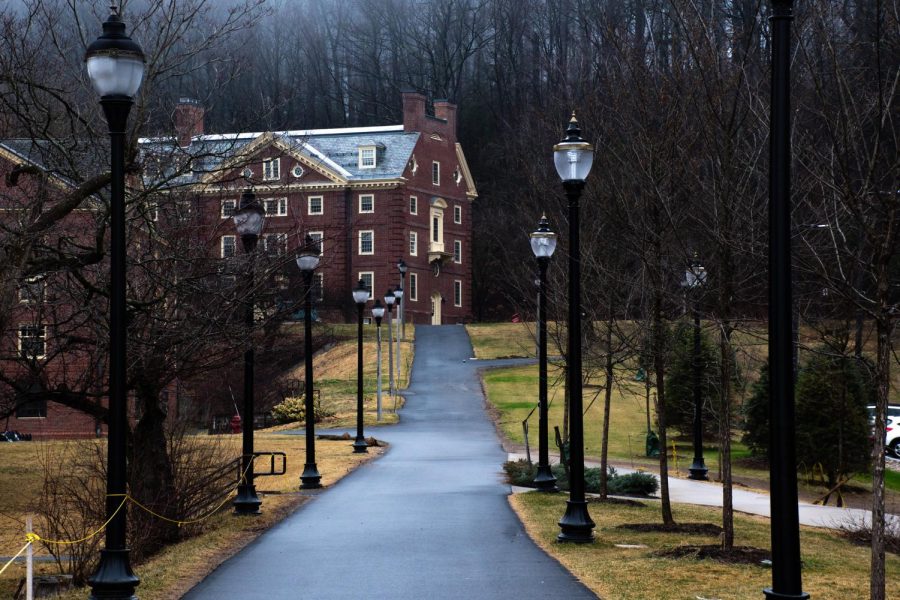In the year following the Dobbs v. Jackson Women’s Health Organization decision, which overturned Roe v. Wade, pregnant people everywhere are losing their right to access abortion.
In Texas, for example, “a pair of laws together ban abortion at all stages of pregnancy, without exceptions for rape or incest, and with narrow exemptions for pregnant people at risk of death,” according to the American Civil Liberties Union, Texas. Similar laws banning abortion are becoming more common since the overturn of Roe, but what does this mean for pregnant incarcerated people, and how will the outcome of the Dobbs case affect their rights to abortion access?
Prior to the overturning of Roe in 2022, there was an understanding that pregnant inmates had a protected right to abortion. Protections for the right to abortion for incarcerated people were guaranteed through two Supreme Court cases: Roe v. Wade and Estelle v. Gamble. Under Roe, the Supreme Court determined that a woman’s right to abortion access was protected under the 14th Amendment of the Constitution’s Right to Privacy. In Estelle, the Supreme Court found that any carceral institution must provide incarcerated people with healthcare, addressing all serious medical needs.
Even with a protected constitutional right to an abortion, however, abortion care for incarcerated people was still highly variable, depending on the institution one was housed in. Some institutions would allow abortions under most circumstances, and some would only allow abortions under strict circumstances, such as for protecting one’s health. Inmates were often met with severe barriers, designed to prevent abortions.
Dr. Carolyn Sufrin, who spearheaded conversations about reproductive justice for incarcerated people, explained that some facilities would limit an incarcerated person’s access to abortion by making them pay for their procedure, transportation costs and a correctional officer’s overtime pay. These restrictions created a loophole for anti-abortion states, where abortion was technically still offered to pregnant inmates but was unobtainable because of unnecessary costs.
Before the overturn of Roe, abortion access for inmates was unpredictable and volatile, but at least if women were denied an abortion, they had legal grounds to sue provided under Roe and Estelle. Now, in a post-Roe reality, incarcerated pregnant people who are seeking abortions have no rights. This means that jails and prisons across the nation will force pregnant inmates to carry out unwanted pregnancies.
Today, nearly 20 states currently have strict abortion bans, with some states completely banning abortion with no exceptions for rape or incest. In the states with the strictest abortion bans, there are more than 40 state and federal women’s prisons, many of which incarcerate pregnant inmates. State institutions will follow their state’s laws, banning abortion access for pregnant inmates. As of now, federal incarceration facilities still guarantee abortion access. But, if that federal prison is located in Alabama, where abortion is outlawed, will that prison fly a pregnant inmate to an “abortion-friendly” state to access an abortion? It’s safe to assume it will not.
According to the Prison Policy Initiative, “there are an estimated 58,000 admissions of pregnant women into jails and prisons every year.” Without the constitutional protections guaranteed under Roe, a majority of those pregnant inmates will lose their right to bodily autonomy and will be forced to carry pregnancies against their will.
When incarcerated people undergo pregnancies behind bars, they are subjected to a high-risk pregnancy. Prisons and jails are built as inherently gendered environments, initially designed for men. These institutions were never invented to cater to the needs of women, let alone pregnant women.
For pregnant inmates, there is a lack of regulation around prenatal care, with some institutions providing none at all. Incarcerated pregnant inmates are forced to wear ill-fitting uniforms, sleep on thin mattresses on cement slabs, have no control over their sleeping needs, lack adequate nutrition for a healthy pregnancy and are often neglected when needing pregnancy-related medical care. For incarcerated people, correctional officers become first responders. These ill-trained officers are notorious for neglecting pregnant inmates when they have experienced miscarriages, contractions, severe bleeding and other serious medical needs.
During labor and delivery, humanity is stripped from pregnant as officers invade their intimate birthing process, shackling them to hospital beds and ignoring any doctor’s orders directed towards them. Regardless of the Eighth Amendment’s protection against cruel and unusual punishment, shackling pregnant inmates happens across the nation. When pregnant inmates are shackled during labor and delivery, they are subjected to a more painful and risky delivery. Perinatal shackling limits a doctor’s ability to perform routine assessments and life-saving procedures, as well as increases the pain levels experienced by mothers. Finally, once the baby is delivered, there are only a few options available for incarcerated mothers: adoption, foster care or giving the child to relatives. More often than not, the incarcerated mother will lose their parental rights over their newborn shortly after giving birth.
When a person is incarcerated, they are serving time behind bars as a punishment. It is fundamentally unfair that pregnant inmates are also given a second punishment: forced, unwanted pregnancies. In states where there are strict abortion bans, pregnant inmates cannot travel to receive abortions, cannot receive abortion pills in the mail and have no legal grounds to sue the state for reproductive healthcare needs. Without access to abortion, pregnant inmates will undoubtedly suffer the most. Being forced to carry unwanted pregnancies to term is a modern version of state-inflicted torture.
Molly Roth can be reached at [email protected].



















